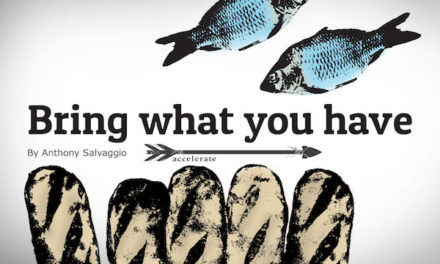Are today’s teenagers the least Christian generation ever? If so, why? What can we do as parents and as a church?
Gen Z (born 1995-2015) is being discipled by their smartphones, taught sex education by Google, and conditioned to assume that just because they believe or read something online then it must be true. According to a 2018 Barna study, 34 percent of Generation Z’s religious affiliation is either atheist, agnostic, or none. In fact, teens 13-18 years old are twice as likely as adults to say they are atheist. And just three in five 13- to 18-year-olds say they are some kind of Christian (59 percent).
The truth is many teens are unprepared for the world that is awaiting them. With our best intentions, we as parents bubble wrap our kids and create Disney World–like environments for them in our churches, and then wonder why they have no resilience in faith or life. Students are entertained but not prepared. They’ve had a lot of fun but are not ready to lead. When the pressure to conform to the world is turned up, Christian teenagers tend to wilt if they do not have the confidence that only comes from knowing why they believe what they believe. I’ve heard many teenagers say; “Following Jesus today is hard because sometimes you feel like the only one.” There is a pull of secularism and relativism in the world and even in the church. How can we equip our children to resist these pulls and stand firm in their beliefs? Over the next few articles/months we are going to look at several practical things we can do to equip the young people in our lives to stand firm in their faith.
Train – The Bible says to “Train up a child in the way he should go, And when he is old he will not depart from it.” (Proverbs 22:6) This is a focused intentional, sustained, God-dependent shepherding of our children’s hearts as they grow into adulthood — one in which the children themselves are aware of the parents’ trajectory-setting intentions. This is not a passive calling for dads and moms. There are opposing paths in this life to choose from. There are two “Ways”:
– The way of wisdom and life, a life lived with and for God;
– The way of folly and death, a life lived without God.
When left to themselves, the “young” lack judgment and have hearts filled with foolishness. “I have seen among the simple, I have perceived among the youths, a young man lacking sense” (Proverbs 7:7). “Folly is bound up in the heart of a child, but the rod of discipline drives it far from him” (Proverbs 22:15). Without discipline, the young bring disgrace on their parents. “The rod and reproof give wisdom, but a child left to himself brings shame to his mother” (Proverbs 29:15). Out of this context, Proverbs regularly exhorts parents to discipline their children and to instruct them in wisdom. “Discipline your son, for there is hope; do not set your heart on putting him to death” (Proverbs 19:18; cf. 1:1, 4; 29:15). Proverbs points out that the natural “way” of a child tends to be more negative than positive; it is the way without wisdom.
Certainly we as parents are always training our kids, even through our passivity. For example, by failing to lead them to repentance before the sovereign God, we teach them that they are fine to continue living as self-made kings and queens, rather than servants. By failing to instruct them in God’s commandments, we teach them that God’s word is not the highest authority in our lives. By failing to set boundaries, we instruct them that we really do not care whether they do good or ill. If our kids don’t see us pray, if we are not praying with them, then we are telling them prayer isn’t powerful and it doesn’t matter.
The consequence statement in Proverbs 22:6 implies that the parents’ intentional moral and religious shaping early on will have a permanent effect on their child for good. This statement is not a hard-and-fast promise to parents, however, for the rest of the book makes clear that the power of the youth’s future depends not only on the parents’ guidance but also very much on the choices he or she makes. The immediately preceding verse implies that the youth must guard his soul from those who are crooked (Proverbs 22:5). He could choose to follow the wicked unto death (Proverbs 2:12–19), or he could heed the wisdom of his parents and choose the good paths of the righteous unto life (Proverbs 22:1–11, 20).
Proverbs 22:6 sets out a principle that time will prove true unless God intervenes. As a parent, I rejoice in the directions given me in God’s word, knowing the Lord calls me and my wife to actively and intentionally dedicate our three kids to represent, reflect, and resemble the glory of God in the face of Christ. Yet Proverbs 22:6 also reminds me how much I and my children fail, so I also rejoice in the power of the gospel to curb my own faults and the hardness of my children’s hearts. God in Christ makes those dead in sin alive (Ephesians 2:4–5), forgives all who confess (1 John 1:9), and overcomes the old creation with new (2 Corinthians 5:17).






